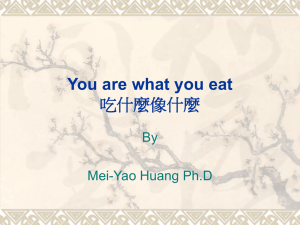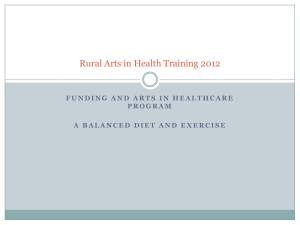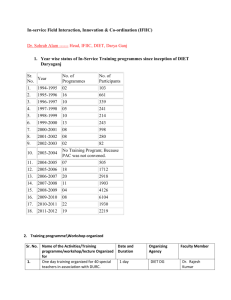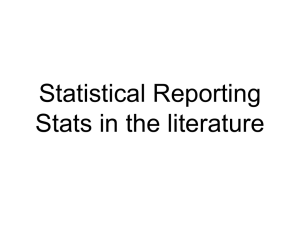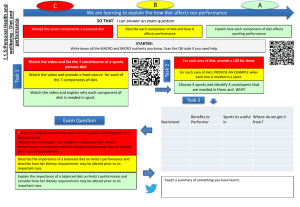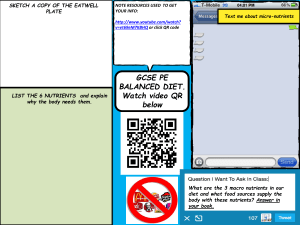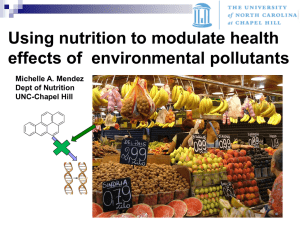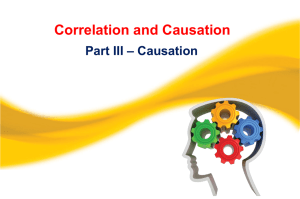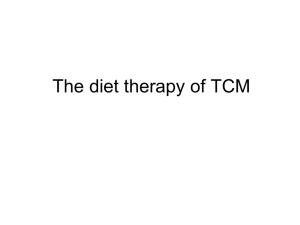TEI: Suggestions on Re-structuring DIETs
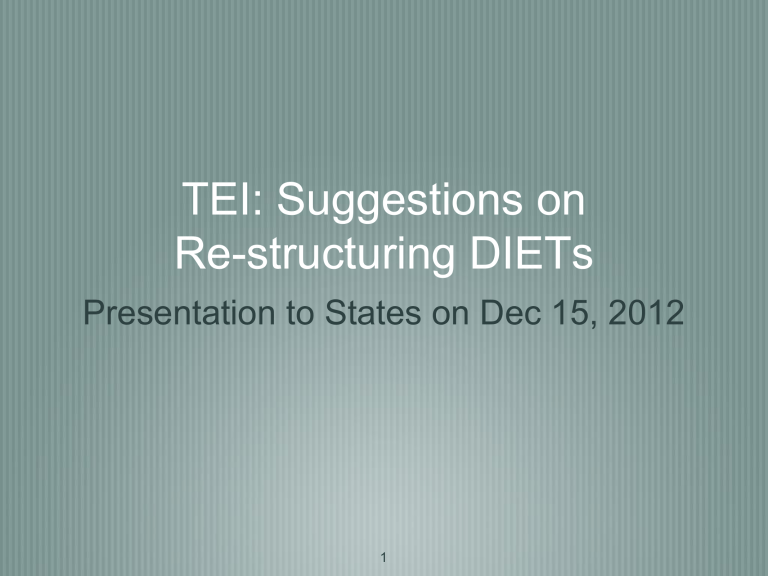
TEI: Suggestions on
Re-structuring DIETs
Presentation to States on Dec 15, 2012
1
Current issues
2
Vision
function
meta-structure
infrastructure, personnel, activities, internal organisational structure
What role does the State
Education Department want
DIETs to play?
Pink book vision:
Powerhouse at District level for devolution of academic support to elementary education:
Teacher education
School improvement through inset
Curriculum innovation and district specific curriculum, materials, etc.
All key educational work only at
State level. District merely an administrative unit.
No vision for Elementary
Education at eithe State or District level.
Inadequate appropriate human resource capacity (Bed/Med all secondary education )
On the whole lacking reform mandate
Pink book
Pre service teacher education —Ded
Important function, especially in states where there were not engough Ded colleges/ programmes. Only part off
DIET that functions.
IFIC
DRU
WE
Virtually no textbook or curriculum work at the district level. Suboptimal staff strength.
Not required after establishment of the
DRCs
Lacking clear purpose or capability/curriculum vision
ET
Pink book
Not clear why a separate wing.
Lab Area
Structure academic
Linkages
—
Administrative
District Positioning
Never took off
Rigid and inefficient and meaningless way of organising faculty.
No opportunities for Elementary
Education Faculty to develop relevant expertise.
Inadequate administrative support for huge task of inservice teacher education organisation.
With SCERT only administrative.
BRC-CRCs non existent.
Weak with reference to Admin structure
Wanted a change
Pink book out
A lot has changed !!
NLM
DPEP , elementary education reform BRC-
CRCs
SSA
NCF2005
NCFTE
RMSA
RtE
Green book in: ecological model.
Integrated into the States vision for education and role for an academic institution at the District.
What are the key academic tasks that are required at the District level today?
1. Overview and overall vision and support for s chools academic strengthening
2. Support to Block institutions to support schools
3. Academic planning for the District
4. Targetted programmes for children of vulnerable groups.
5. Development of MRPs in various aspects of school curriculum and school requirements.
6. Teacher Professional Development PSTE/INSET--
7. Oversight of RtE etc.
Need of the hour: institutional character
• The Institution must emerge as an autonomous Institution, with EACH DIET defining and evolving its particular institutional character. The DIET must cease to function as the district arm of the DSERT.
• 2. By focusing on and developing a core identity around either Teacher
Professional Development or School Improvement, the Institution can acquire overall direction.
• Adequate infrastructure befitting a key District level institution as well as finances to carry out a variety of activities are also an imperative for Institutional recovery.
• 4. Breaking out of the current insularity by more vibrant involvement with NGOs and institutes of higher education through various collaborations is imperative.
• 5. The appointment of the Principal of the DIET MUST be through selection only and s/he must have a minimum tenure of 3-years in the Institute.
Financial and personnel
• Timely and adequate release of funds is of crucial importance to
DIET functioning.
• While encadrement can assure dedicated academic personnel, it would still not completely solve the problems created by transfers and also by lack of expertise and insularity. Open-selection and movement between institutions through open selections would enhance institutional affiliations and identity.
• Rather than deficit approach to capacity building —proactive professional upgradation through advanced courses at universities.
NOT ORIENTATION
• Can have visiting and other types of faculty including 3 year fellowships for teachers
Key focus areas:
• (a) District specificity and orientation in their overall activities: in particular in areas such as district specific material development, research and action-reseach programmes for special groups in the District.
• (b) Linkages and Support to teacher professional development —secondary, elementary & preschool
• (c) Linkages and methods of academically monitoring and supervising school improvement/school development.
• (d) Serving as a Education Resource Centre.
Approaches to school improvement
Four core areas
School Functioning
Academic Work
Equity
Community
2 broad directions for DIET
Administering Academic Work:
Without inherent academic capacity, but empowered to ‘resource’ academic personnel to carry out various academic tasks
Performing academic work: by virtue of having academic personnel, with administrative support.
Staffed with administration persons. We will not then have academic expectations from this institution.
Need appropriate human resources —faculty with academic specialisations and adequate administrative support for academic work. We will not load the institution with administrative tasks.
Will require upward & downward linkages Will require upward & down ward linkages
Approach A: plan, manage district academic needs through teacher devpt
Regular monitoring of BRCs, CRCs and schools
Outsources expertise needed for INSET programs
Consolidates data relating to school quality and provide feedback to BRC, CRCs
Runs a Resource Center
DIET faculty to act as block support
1
3
Approach B: In-house expertise to guide school quality and teacher ed
Expertise constitutes knowledge and understanding of subjects, pedagogy and research/documentation/analysis.
Develops training programs and supports MRPs
Monitors school quality through visits and research
Runs resource centers
DIET faculty support the blocks
1
4
Faculty profiles
Working groups
Where can the linkage with the University be established?
• Capacity building: short term and long term courses for faculty in specialisation areas: child development, foundations of education, pedagogy of mathematics, etc. school leadership, policy studies, gender and education, etc.
• Open academic discussion forum
• Renewal of teacher education curriculum PSTE& INSET
• Joint action research programmes and material development
• Faculty exchange: DIET visiting faculty positions in university and vice-versa
Thank you
1
8
